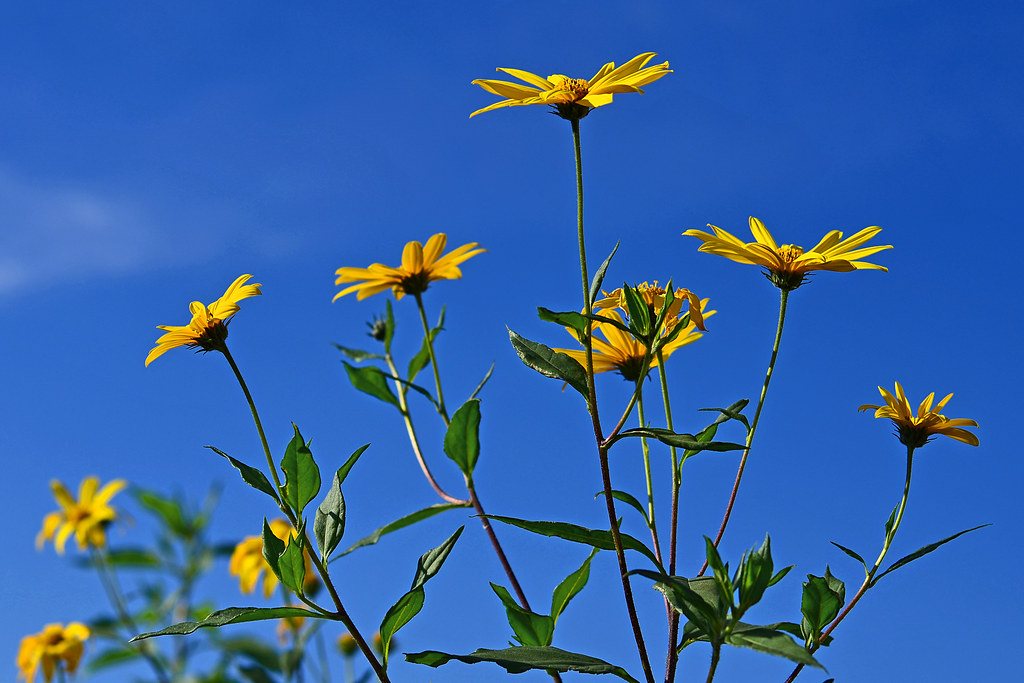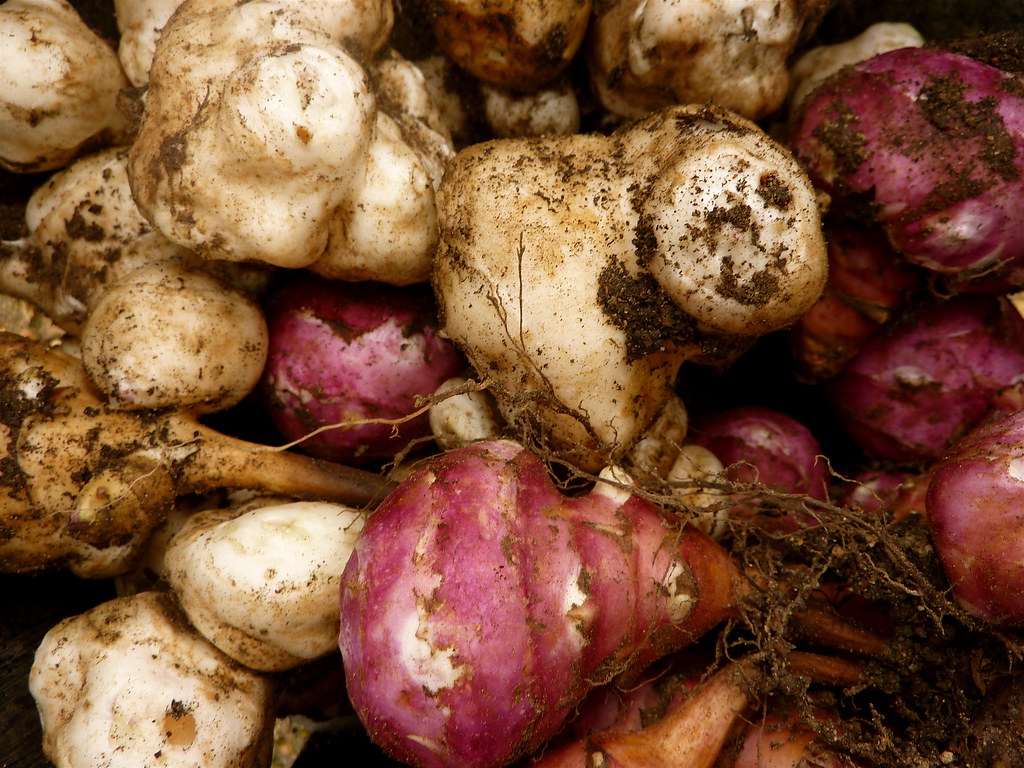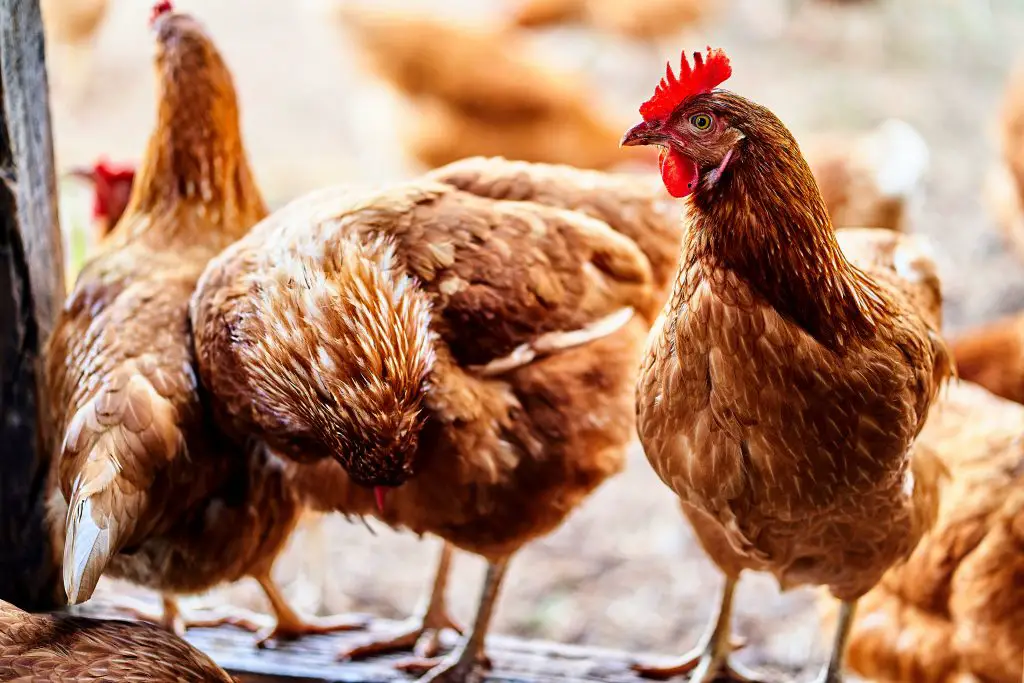Does your backyard host a wild vegetable patch full of various greens and herbs? Do you have an olive tree at home that produces delicious olives? If the answer is yes to either of these questions, then you most likely already know about Jerusalem artichokes. That’s because Jerusalem artichokes are one of the easiest vegetables to grow in your backyard. They thrive in well-drained soil, so they can be planted almost anywhere.
The plant is also quite low maintenance and requires very little attention from the gardener or owner. You don’t even need to fertilize them as often as other plants. This means that you can end up with literally heaps of plants. So if you have too many of the can you feed the to your chickens? Is it safe? Or will it cause problems?
Chickens can eat the tubers of Jerusalem Artichokes, however, giving them the tubers whole can make it difficult for the chickens to eat and it is common to end up with the tubers lying all over the pen with peck marks in them. To make it easier for them to eat it is advisable put the tubers through a food processor and cut the tubers up into small pieces.
Jerusalem artichokes are ideal for chickens because they contain no toxic chemicals and a range of vitamins and minerals that will encourage the chickens to remain healthier. Chickens also seem to love the taste of Jerusalem artichokes and they will eat them preferentially over other green vegetables.

Will Chickens Eat Other Types Of Root Crops?
Yes, chickens will eat other types of root crops including potatoes, carrots, beetroot, and parsnips. However, like the Jerusalem Artichokes the roots need to be shredded. Additionally, it is important to note that it is not advisable to feed them green potatoes or carrots with green tops as they are toxic and can cause problems with your chickens.
Can You Feed Chickens Jerusalem Artichokes That Have Sprouted?
Jerusalem artichokes are safe to feed to chickens. Chickens will eat the leaves, shoots, and flowers, but they will struggle to eat the stems unless they are chopped up finely. To do this ideally the plant should be run through a garden shredder or if you don’t have one like that I would recommend using a spade to try and chop them up finely.

Can You Feed Chickens Too Many Jerusalem Artichokes?
The short answer to this question is no. Chickens cannot eat too many Jerusalem artichokes in a week. Jerusalem artichokes are rich in antioxidants and vitamins A, B, C and K. They also contain high levels of potassium, magnesium, and iron, which makes them ideal for feeding chickens.
However, it is never advisable to feed the chickens one type of plant. Their diet should consist of a wide range of plants which includes also commercial chicken food.
What Types Of Plants Should Chickens Be Eating?
While chickens love to eat Jerusalem Artichoke it is advisable for them to eat a wide range of vegetables, in particular, chickens love to eat a range of leafy greens eat which will help supplement their diet of commercially purchased chicken food.
As a general rule chickens can eat any vegetables and fruits that we enjoy. which can include vegetables such as zucchini, pumpkin, eggplant, and capsicum to name a few. They will also enjoy a range of leafy greens such as lettuce, spinach, cabbage, coriander, and parsley.
However, there are a couple of things I would avoid which include green tomatoes or green potatoes as they contain chemicals that are toxic to chickens within them that can cause problems with chickens. Another this to be weary of is the leaves of edible fruiting plants which we do not eat ourselves.
For example, tomato plants do have similar chemicals in them to green Tomatoes and potatoes which can cause problems and the leaves of rhubarb is toxic. So as a general rule if we don’t eat the plant it is best to avoid giving the chickens the plant unless you have information that indicates that it is safe for them to eat.

Can You Feed Chickens Stale Or Mouldy Food?
Let’s say you have a few leftover Jerusalem artichokes from last night. You’re planning to feed them to your chickens, but the question is: are these chokes still good enough for your birds? The answer is yes. Chickens can eat anything that’s not rotten or moldy.
As long as the food isn’t too old, it will be fine for your feathered friends to consume. Now some people don’t want their chickens eating things that are just too good for humans to eat, so they wait until the food has gone bad before feeding it to their birds.
This may seem like a logical idea, but sometimes this causes chickens to die of starvation or dehydration as the food’s water content can fall. So it is always best to offer the birds fresh food to avoid having problems.
Additional, any food that has mold on it should not be given to the birds and it can poison them if they eat it but it can also contaminate their pen which can cause problems in other ways.
Conclusion
Chickens eat almost anything including Jerusalem artichokes but they need to be cut up as they will have difficulty eating the tubers. They can also eat Jerusalem artichokes plants that have already sprouted, so they will make a great addition to a chicken’s diet.
Relevant Articles
Are Jerusalem Artichokes Easy To Grow?
How Much Does A Jerusalem Artichoke Yield Per Plant?
Can Chickens Eat Capeweed? Is It Safe?
Is It Safe To Eat Zucchini With Powdery Mildew?
